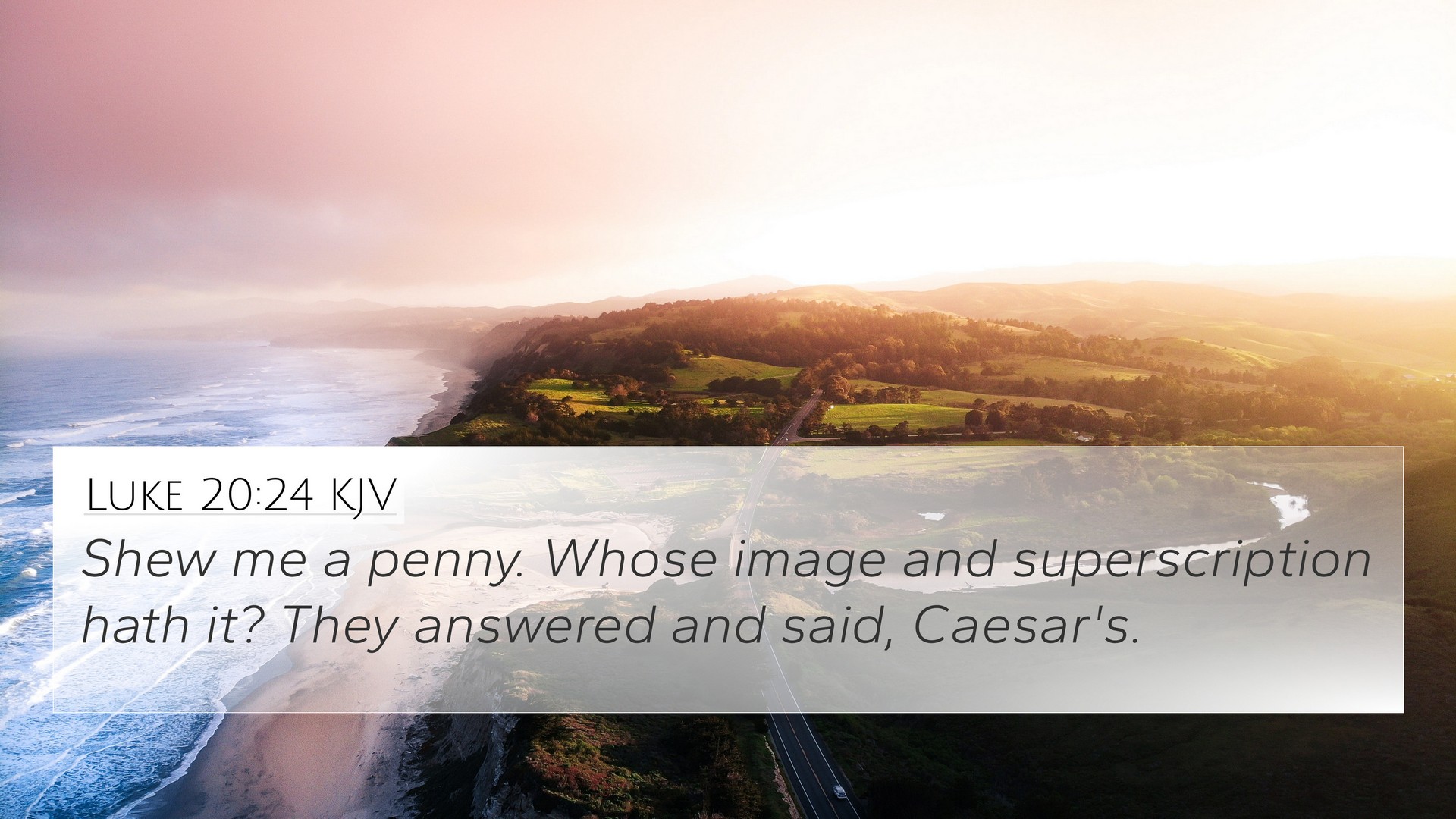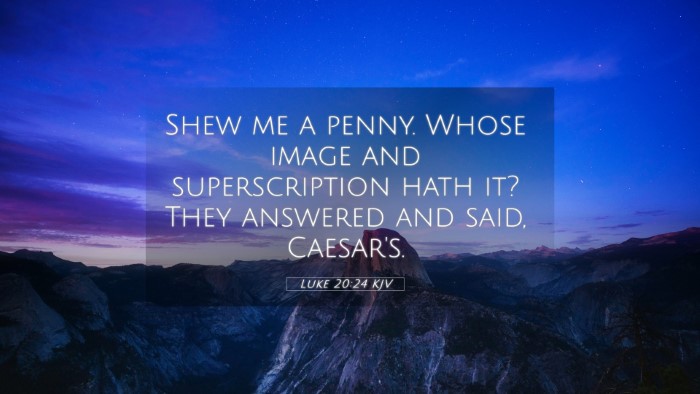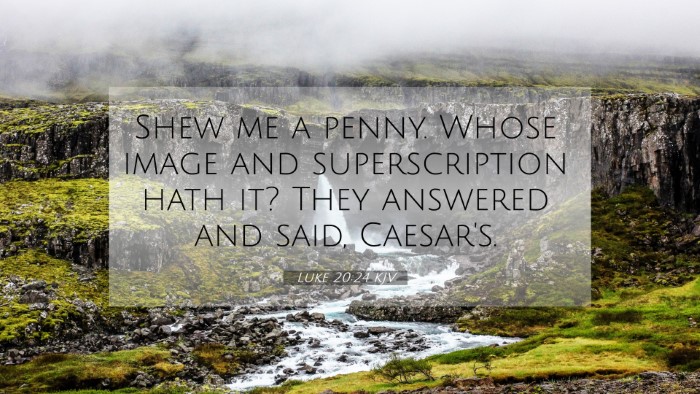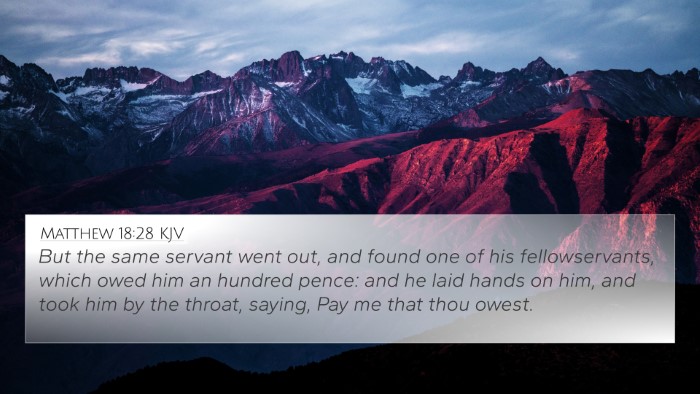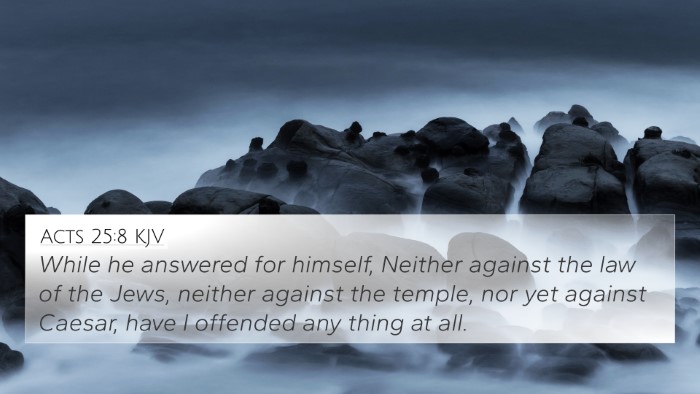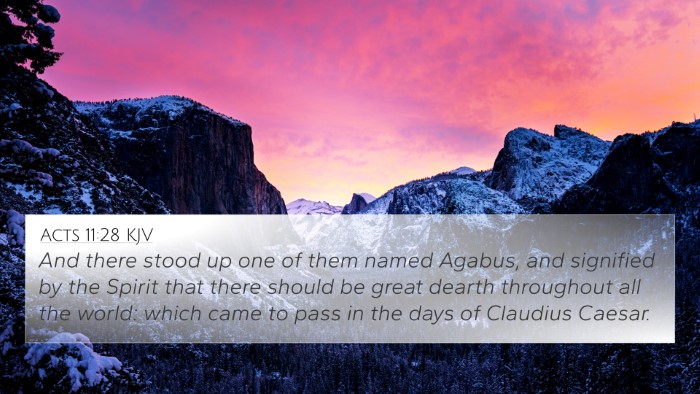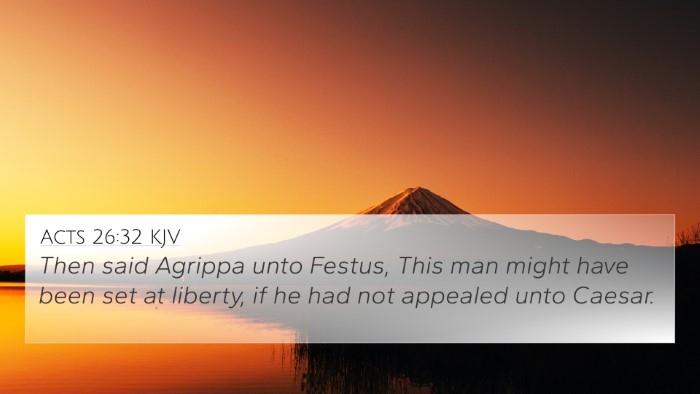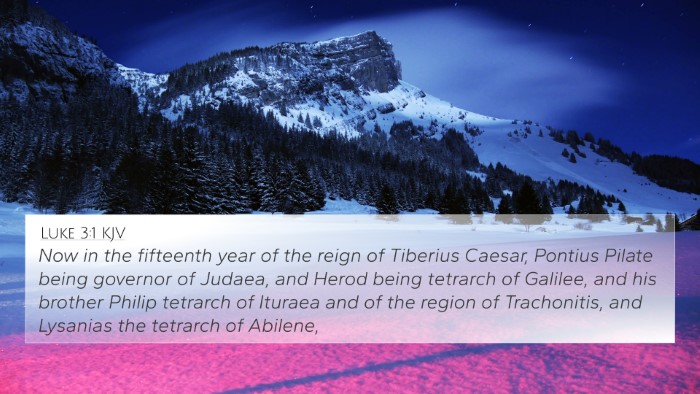Bible Verse Meaning: Luke 20:24
Luke 20:24 states: "Show me a denarius. Whose likeness and inscription does it have?" They said, "Caesar's." This verse occurs within a significant discourse where Jesus addresses questions regarding the lawfulness of paying taxes to Caesar, illustrating deeper spiritual insights about our responsibilities to both earthly and divine authorities.
Summary of Insights from Public Domain Commentaries
This verse, while seemingly simple, has profound implications that have been explored by various biblical scholars. Here we will combine insights from Matthew Henry, Albert Barnes, and Adam Clarke to provide a comprehensive understanding of its meaning.
Context and Importance
Jesus poses a question about the currency of the time to demonstrate the nature of authority and stewardship. He asks to see a denarius, a common Roman coin, which would have been familiar to the audience. By doing so, He connects monetary policy directly with the Roman governance that ruled over Judea during His ministry.
Matthew Henry's Commentary
Matthew Henry emphasizes the importance of recognizing the image on the coin, which represents the temporal authority of Caesar. He articulates that everything under heaven ultimately belongs to God, and that includes the tribute paid to earthly leaders. This act does not diminish our duties to God but calls for a proper understanding of where authority derives its power.
Albert Barnes' Insights
Barnes focuses on the cultural context, mentioning that the denarius bore the image of Caesar, which symbolized Roman rule. He highlights that this passage serves as a reminder of our obligations to the governing authorities, aligning with Paul's teachings in Romans 13 about submission to authority being part of our service to God.
Adam Clarke's Analysis
Clarke brings in the nuance of the inscription on the coin, indicating Caesar’s claim and representing his dominion. He elaborates that while we owe tribute to earthly governments, we should remain vigilant in prioritizing our allegiance to God. Clarke reinforces the notion that our financial dealings should reflect our values as believers.
Key Themes and Lessons
- Separation of Responsibilities: The verse teaches the distinction between earthly duties and spiritual obligations.
- Authority: Examines the authority of secular powers versus divine authority.
- Recognition of God’s Sovereignty: Ultimately, God is sovereign over all creation, which includes human institutions.
- Stewardship: Believers are called to be good stewards of their resources, which includes proper dealings with governing entities.
Bible Cross-References
This verse can be connected to several other scriptures that explore similar themes. Below are 10 cross-references that enhance its meaning:
- Matthew 22:21: "Render therefore to Caesar the things that are Caesar's, and to God the things that are God's."
- Romans 13:1-7: Discusses the Christian's duty toward governing authorities.
- Mark 12:17: A parallel account of Jesus’ teaching on paying taxes.
- 1 Peter 2:13-17: Encourages submission to human institutions for the Lord’s sake.
- Titus 3:1: Reminds Believers to be subject to rulers and authorities.
- Matthew 6:19-21: Discusses the true treasures and the heart's focus away from earthly possessions.
- Proverbs 21:1: "The king's heart is in the hand of the Lord, as the rivers of water: he turneth it whithersoever he will."
- Philippians 3:20: "For our citizenship is in heaven; from which also we look for the Savior."
- Hebrews 13:17: Acknowledges obedience to those in authority over you.
- Revelation 13:17: Concerning economic systems under oppressive regimes.
Conclusion
In summarizing Luke 20:24, we discover a multi-layered discourse on authority, stewardship, and allegiance. It invites believers to navigate the complexities of life under earthly powers while maintaining their ultimate loyalty to God. By studying cross-references and connections between various Bible verses, we can gain deeper insights into the teachings of Jesus and the nature of our spiritual responsibilities.
Thematic Bible Verse Connections
Exploring connections between scripture allows us to see a broader framework of Christian doctrine. This verse is pivotal in understanding themes of governance, authority, and individual responsibility that echo throughout both the Old and New Testaments.
